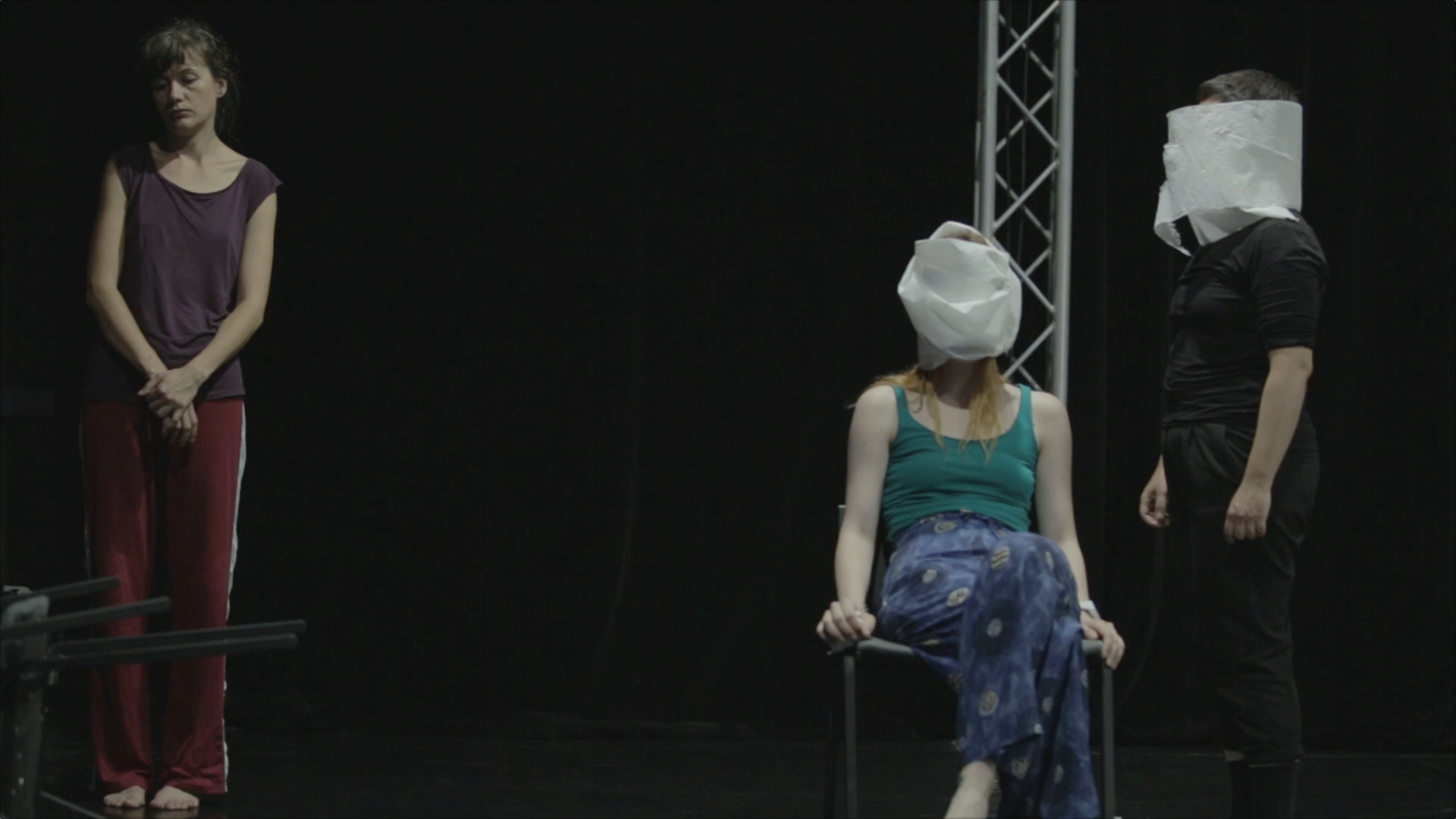Re-boot: Unlearning schemata technique
2018-19 / Concept & Direction as Ludic Collective
06/2018, Re-boot workshop, National Center of Dance, Bucharest (CNDB)
08/2018, Re-boot residency & workshops, Seoul Dance Center, Seoul
02/2019, Re-boot workshop & performance, Teatru Fix, Iasi
Re-boot: Unlearning Schemata Technique is a research project which is an extension of the immersive performance project Planet i., which had started in 2016; experimenting the recovery procedure of cognitive re-development from collective trauma.
After 2 years of investigation for Planet i., Ludic members began to specifically focus on the common interest in somatic re-boot as an independent technique: could we disorient our perception in such a way that we rewire our soma, and create new patterns and schemata of behaviours? We would like to discover as we convey the process of phenomenological sensing, perceiving, acknowledging different types of somatic memory, etc.
Re-boot also takes the form of somatic workshops that were open to the public, mainly developed during the residency at Seoul Dance Center by Andreea David, Hennie Lee and Iulia Maracine. We had the first week to ourselves, then in the second week held workshops for people who were interested in our theme of "unlearning" and "re-booting". Five days of workshops were designed around five different themes per each day:
1. The ‘zero’ point
Q. What is a zero point, is it a pre-conscious state? Does it contain infinite possibilities of becoming?
Process: meditational exploration; focus on breathing, then slowly activate one’s sight; protolanguage exercise.
2. Imaginary/reality
Q. How do we find ourselves in the images produced by our own projection of reality?
Process: engaging senses, especially touch; shortcutting our imagination, we will try to suspend the logic and anticipation of actions
3. Deconstructed walking
Q. Can we unlearn automatic functions of our soma? What happens when we interrupt the trajectory to the embodiment of action?
Process: exercises inspired by the Feldenkrais technique and R.Shustermann’s theories on somatic memory.
4. Memory
Q. Can we be projected by the past whilst also projecting into the future?
Process: movement exercises into long-term memories in order to reinterpret the present.
5. Otherness
Q. How do we relate to otherness? What is the foundation of communication and language?
Process: appropriate new meanings to objects and people around us through the use of movement and voice.
